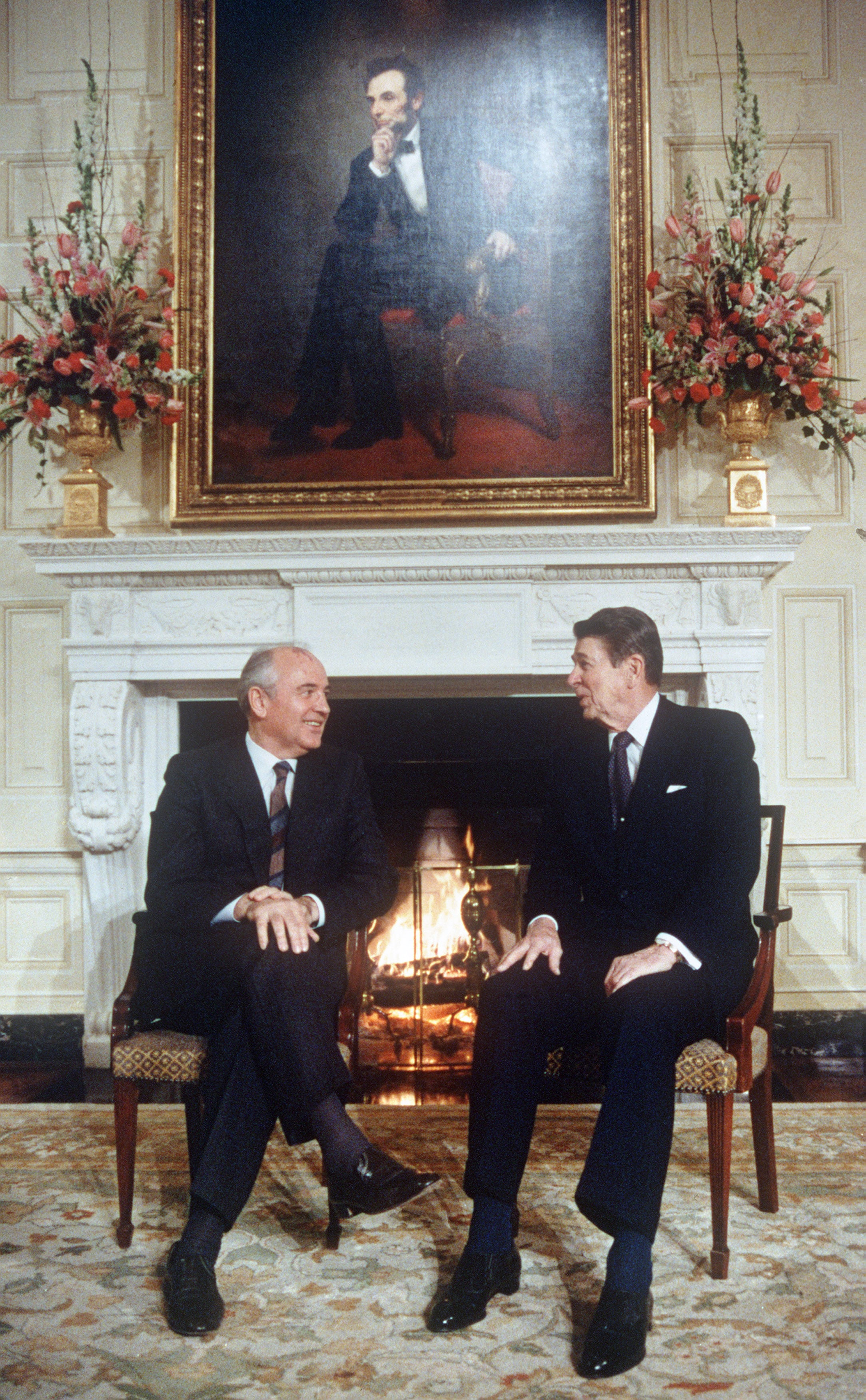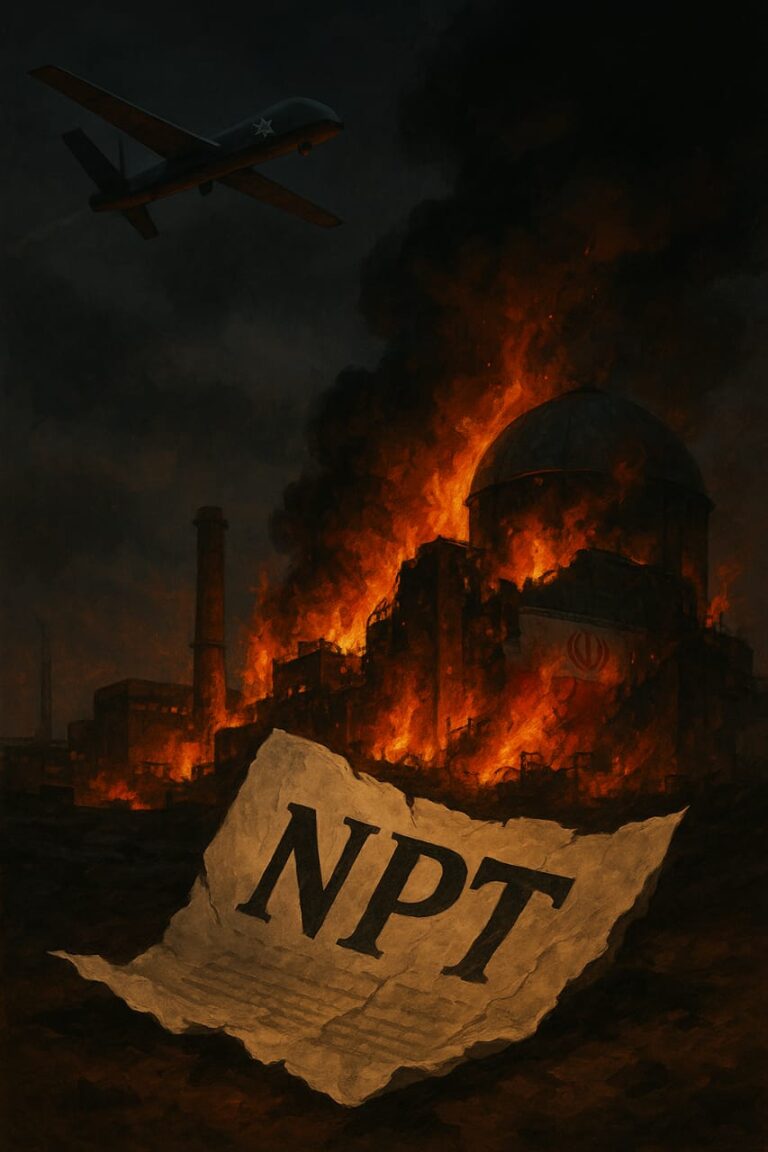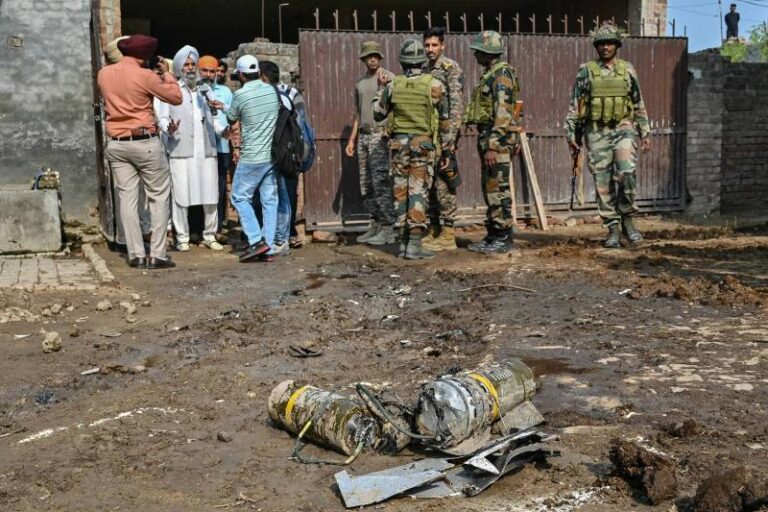
Source: AFP
Moiz Khan
One after the other, Trump administration has been leaving international organisations, breaking deals and withdrawing from international arms control treaties. The list includes, US withdrawal from the Trans-Pacific Partnership, UN Human Rights Council, United Nations Educational, Scientific and Cultural Organisation (UNESCO) and the Paris Agreement on Climate Change. US also stopped funding the United Nations Relief and Works Agency for Palestine Refugees (UNRWA). Trump also finally fulfilled his election campaign promise by withdrawing the US from the Joint Comprehensive Plan of Action (JCPOA) with Iran as part of the comprehensive nuclear deal signed with major world powers aimed at curbing the Iran’s nuclear programme in return for sanctions relief. Keeping up with the tradition, President Trump threatened on October 20, 2018 that the US would soon withdraw from the 1987 Intermediate-Range Nuclear Force Treaty (INF).
Signed by the then US President Ronald Reagan and former Soviet General-Secretary Mikhail Gorbachev on December 8, 1987, the INF Treaty led to the elimination of an entire class of destabilising nuclear weapons that were deployed in Europe, as it banned ground-launched nuclear and conventional ballistic and cruise missiles with ranges between 500 to 5,500 kilometres. The Treaty also prohibits state parties from producing, flight testing and possessing these missiles. The culmination of the Treaty resulted in the destruction of 2,692 missiles, the US eliminated 846, while Moscow 1,846 by the treaty’s implementation deadline of June 1, 1991. President Trump claimed that the US had stayed and honoured the agreement, but alleged that Russia had been violating the agreement for many years. Though the US has not filed a formal withdrawal notice from the Treaty, John Bolton, the National Security Advisor has confirmed that the US would withdraw from it. Under the terms of the treaty, it would take six months for the US withdrawal to take effect.
In response to US’ withdrawal warning, Russia’s Foreign Ministry called it a move motivated by the US dream of becoming the single global superpower. While calling the US’ withdrawal a dangerous step, Russian Deputy Foreign Minister, Sergei Ryabkov indicated that Russia would stay in the Treaty if the US strictly complies with it. However, Russian President, Vladimir Putin warned that the US decision ‘would not be left without an answer.’ NATO ministers also issued a joint statement saying that the INF agreement ‘has been crucial to Euro-Atlantic security’ and that they ‘remain fully committed to the preservation of this landmark arms control treaty’ though they urged Russia to come clean about the capabilities of its new missile. Similarly, China and Japan have also raised concerns over the US announcement of withdrawal.
The US accusation of Russia violating Treaty is not new, it has been saying so since 2014. The 2014 Compliance Report by the US Bureau of Arms Control, Verification and Compliance on Adherence to and Compliance with Arms Control, Nonproliferation, and Disarmament Agreements and Commitments alleged that Russia was violating the Treaty by producing and testing ground-launched cruise missile, known as SSC-8, which the Russian military calls the 9M729, with a range that is not compliant with the Treaty. Subsequently, these allegations continued to be levelled by the subsequent State Department’s reports of 2015, 2016, and 2017. General Paul Selva, the Vice Chairman of the US Joint Chiefs of Staff, alleged in October 2017 that Russia had deployed the ground-launched cruise missile (GLCM) in violation of the INF Treaty. However, Russia continues to reject the allegations and in return accuses the US of violating the agreement. Russia maintains that the US missile defence interceptor platforms deployed in Eastern Europe, Mark 41 Vertical Launch System (VLS), which is a multi-missile, multi-mission launcher, when used on ground could be used to launch intermediate-range cruise missiles as well (making it GLCM), which will be a violation of the INF Treaty. US rejects these allegations.
Amidst these accusations and counter-accusations by Russia and the US, the fate of the Treaty is uncertain. There are implications for both global strategic stability and the nuclear non-proliferation regime if the Treaty is abrogated by either party. The world will see unbridled arms race at the superpower level which will have domino effect for other great powers and regions around the globe. Both US and Russia consider the INF a constraint on their ability to counter the growing Chinese missile forces in the Asia Pacific. When the INF was negotiated and signed in 1987, only the US and Russia possessed the intermediate range nuclear forces. Today, China along with other countries like Iran, North Korea, India among others possess a fast growing arsenal of similar missiles in their ground-based fleet.
In case the INF Treaty falls apart, both Washington and Moscow would indulge in large-scale development and deployment of ground-launched ballistic and cruise missiles of ranges banned under the Treaty. This armament would not only challenge Chinese military capabilities but would also alter the balance of power in the region. The combined US and Russian missile forces would pose counterforce threats to the Chinese nuclear arsenal, pushing it to improve its own inventory qualitatively and quantitatively. Consequently, India, Pakistan, North Korea, Iran and Saudi Arabia will not be far behind.
The intensified arms race across the globe would have serious implications for the already fragile nuclear non-proliferation regime. Though the year 2018 started on a positive note with the reductions goals met by both US and Russia as per the New Strategic Arms Reduction Treaty (START) in February 2018, the euphoria however, was short lived after the release of the 2018 US Nuclear Posture Review (NPR). The US committed to modernise its nuclear arsenal and enhance the credibility of its nuclear deterrent by developing new types of nuclear weapons, the policy reiterated that the US would not ratify the CTBT, a significant arms control treaty which has been ratified by Russia, and would otherwise have been a significant milestone for non-proliferation objectives. The 2018 NPR signalled clear departure by the US from any legal obligation towards nuclear disarmament as a signatory to the NPT. The 2018 US NPR is also silent on the extension of the New START as it sets to expire in February 2021. There is no indication of a new treaty that could replace the New START. US withdrawal from the JCPOA in May 2018 has also rendered a blow to the non-proliferation regime and has challenged the credibility of the US as the torch-bearer of the global arms control and non-proliferation regime. For now Iran is committed to the terms set in the JCPOA as are all other parties who signed it but it remains to be seen for how long this status quo would remain in place. Collapse of the JCPOA, should all parties withdraw, will not only further deteriorate the already tense situation in the Middle East but would also shatter hopes for the denuclearisation of the Korean Peninsula.
Currently, the US has 500 tactical nuclear weapons in its arsenal, 2750 in storage and 180 deployed with NATO, and would also develop three new nuclear capable weapons, including Long-Range Stand-Off (LRSO) cruise missiles which would replace the Air-Launched Cruise Missile (ALCM), sea-launched cruise missiles (SLCMs) and a low-yield nuclear warhead for existing submarine-launched ballistic missiles (SLBMs) and future SLCMs. The US possession of these weapons together with other air and sea-based weapon systems implies that US wants to reinforce its regional deterrence capabilities vis Russia and China. Moreover, US and Russia have not yet exhausted other diplomatic means of resolving their disputes regarding each other’s INF violations allegations. As super powers, both US and Russia need to be proactive in ensuring that their bilateral arms control arrangements remain intact since such arrangements are vital for the future and survival of non-proliferation regime.
Moiz Khan is a Research Fellow at the Strategic Studies Institute Islamabad (SSII).




